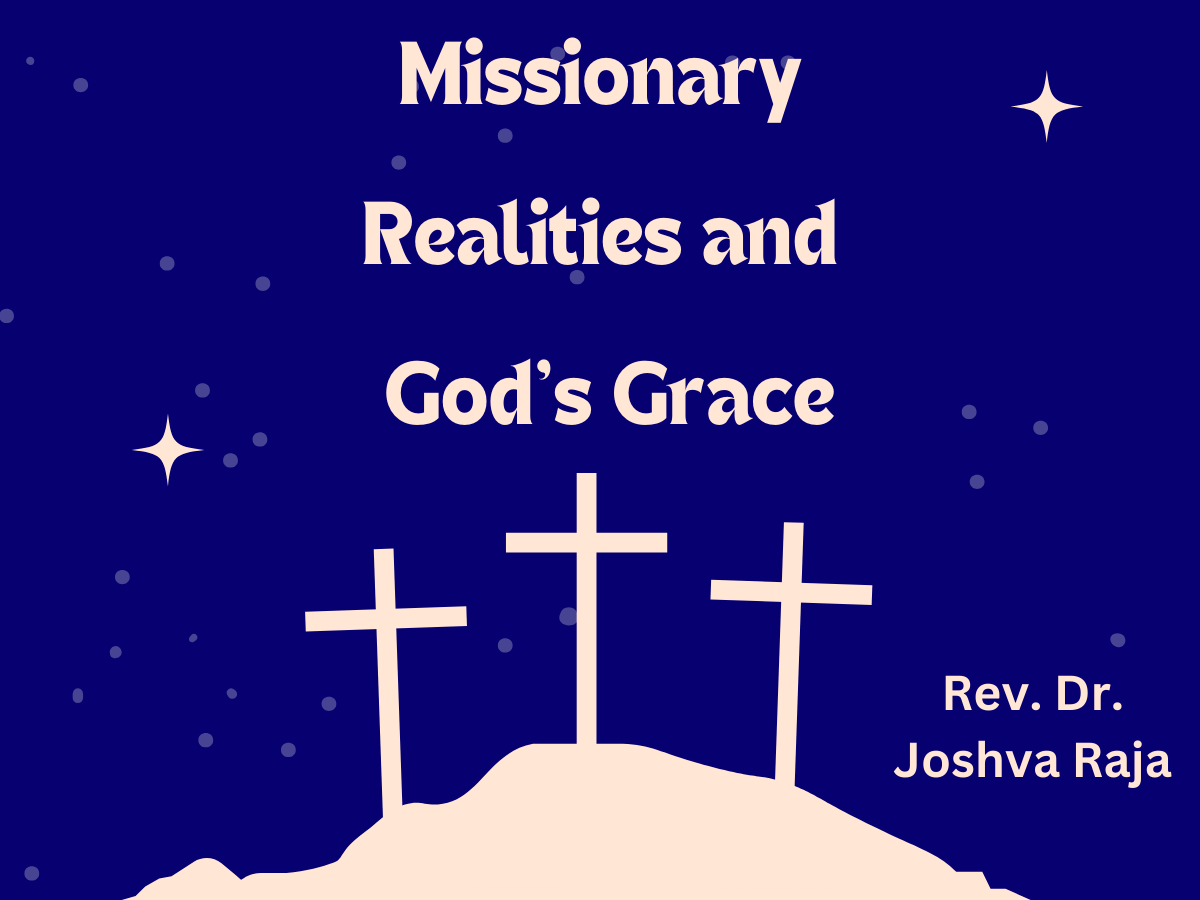
‘Go into all the world and preach the good news to all creation … they will place their hands on sick people and they will get well’ (Mk.16:15-18).
When people asked me to pray for healing a sick person or solve their problems, at times it got worse. How do we handle the vulnerable situations in our life? When someone introduces us, the glorious moments of our life are highlighted and the vulnerable moments ignored. William Carey once said, ‘Expect Great Things from God, Attempt Great Things for God’.
What if great things do not happen when expected and when attempted? ‘Yes God’ experience and ‘No God’ experience: Joseph was put in prison for no fault of his. ‘Joseph’s master took him and put him in prison, the place where the king’s prisoners were confined’ (Gen.39:19-20). Where was God? In the book of Job and Daniel we see where God becomes either silent or absent until the person undergoes this challenge and then comes for their rescue at the end. Jesus himself was crying out on the cross to God, ‘”Eloi, Eloi, lama sabachthani?” – Which means, “My God, my God, why have you forsaken me?”’ (Mt.27:46).
Sometimes our life is caught between ‘Yes God’ and ‘No God’ experience. ‘No God’ experience makes our mission a very difficult one, yet there is an assurance of God being with us, ‘Immanuel’. In these ‘No God’ experiences, many people around you would see your genuine struggle for truth and will join you in searching for God. ‘Changing’ and ‘Unchanging’ God: When people asked for a king, God told Samuel, ‘it is not you they have rejected, but they have rejected me as their king’ (1Sam.8:7).
Yet we see later that God began to use the offices of priests and kings to carry out the task of leading the Israelites. In a way God worked within the expectations and limitations of people. God shows acceptance of changes within his chosen people and their context. For God, relationship becomes suddenly important and thus he changes rules and regulations. The birth and resurrection stories of Jesus clearly show God changing the law of nature to establish relationship with human beings.
God changes his own rules and laws to bring back human beings into a positive relationship with him and among themselves. This is why Jesus also says, Sabbath is made for human beings, not human beings for Sabbath. In the case of Peter, God had cleaned up the unclean and he was asked to eat those unclean animals (Acts 10:11-16). He was asked to eat in order to make him understand that God can act outside all these norms and regulations. In a way God may be viewed as the looser in his narratives.
But in his loss, he gains human relationship. This is very true in the parable of retuning son (prodigal son) in Luke 15 where the father gets back his younger son but looses his argument with the elder son. Rules, regulations and ritual practices become secondary where relationship is concerned. The primary importance within the kingdom is relationship besides faith. In a changing context, we need to emphasize on relationship between human beings with God and among themselves.
‘Exclusive’ and ‘Inclusive’ God: We see God as being exclusive (Ex.20:3). He does not want us to worship any other gods besides him. He is also seen as an inclusive God who brings his people Egyptians from Egypt and Assyrians from their place (Isa.19:19-25). The goal of mission must be directed towards building an inclusive and serving community of God rather than develop exclusive ones.
It is essential that we cross boundaries in our mission in order that Christians too serve the wider community and thus witness the Christian love among others. Those who have built an inclusive serving and welcoming community have remained in the minds of people and so are well recognised in the history of the land. It is in our vulnerability that great things happen in our lives. It is in our emptiness and loss that great transformation in human-God relationship happens. It is in our failures to make a measurable impact that God’s great impact begins. Let us strive to go through our vulnerable experience with God, establish a better relationship with God and with others and welcome all towards an inclusive and serving community.
Author: Rev. Dr. Joshva Raja is an ordained minister of the Church of South India – Tirnelveli Diocese.


